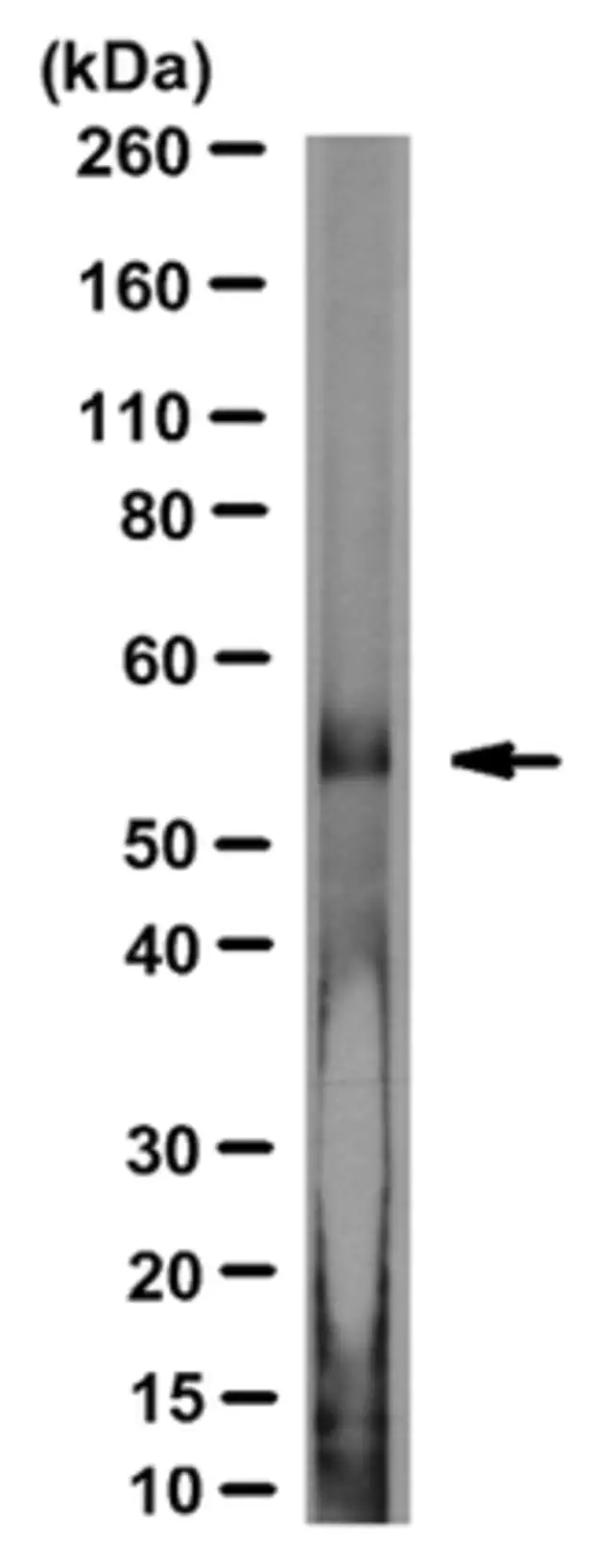您的位置:首页 > 产品中心 > Anti-C9ORF72/C9RANT (poly-AP) Antibody, clone 14E2
Anti-C9ORF72/C9RANT (poly-AP) Antibody, clone 14E2

产品别名
Anti-C9ORF72/C9RANT (poly-AP) Antibody, clone 14E2
C9ORF72/C9RANT (poly-PA)
基本信息
| eCl@ss | 32160702 |
| General description【一般描述】 | Expansion of a GGGGCC hexanucleotide repeat sequence in the non-coding region of human chromosome 9 open reading frame 72 or C9orf72 (also known as ALSFTD, FTDALS; Gene ID 203228) is the most common genetic abnormality in familial and sporadic frontotemporal dementia (FTD) and motor neuron disease (MND), with amyotrophic lateral sclerosis (ALS) as the most frequent form. The number of hexanucleotide repeats in the normal population ranges from 2 to 24, whereas up to several thousand repeats (700 - 4,400 repeats) are found in the pathologically expanded allele. Unconventional repeat-associated non-ATG-initiated translation (RANT) of the GGGGCC repeats in the three alternate reading frames from both sense and antisense transcripts generates five types of dipeptide repeat (DPR) protein species, each composed of repeating units of two amino acids, glycine-alanine (GA), glycine-proline (GP), glycine-arginine (GR), alanine-proline (AP), proline-arginine (PR), respectively. Immunofluorescence localization of exogenously epxressed DPR-GFP fusions in HEK293 transfectants showed dot-like or star-shaped poly-GA inclusions with predominant cytoplasmic and occasional nuclear localization, while poly-GR and poly-PR showed large dot-like intranuclear inclusions and occasional smaller cytoplasmic inclusions. In contrast, poly-PA was evenly distributed throughout the nucleus and cytoplasm without apparent aggregation. |
| Specificity【特异性】 | Clone 14E2 recognizes C9ORF72/C9RANT (poly-AP) and other proteins containing poly-AP (poly-PA) sequence. Target sequence is not species-specific. |
| Immunogen【免疫原】 | Recombinant GST fusion with a 10 AP-repeat sequence (GST-AP10). Epitope: poly-AP (poly-PA). |
| Application【应用】 | Anti-C9ORF72 Antibody, clone 14E2 is an antibody against C9RANT (poly-AP) for use in Western Blotting, Immunocytochemistry. Immunocytochemistry Analysis: A representative lot detected the expression an exogenously transfected PA175-myc dipeptide repeat (DPR) construct containing a 175 PA-repeat sequence by fluorescent immunocytochemistry staining of 4% paraformaldehyde/4% sucrose-fixed, 0.3% Triton X-100-permeablized HEK293 transfectants (May, S., et al. (2014). Acta Neuropathol. 128(4):485-503). Western Blotting Analysis: A representative lot detected the expression of an exogenously transfected PA175-myc dipeptide repeat (DPR) construct containing a 175 PA-repeat sequence in lysate from HEK293 transfectants (May, S., et al. (2014). Acta Neuropathol. 128(4):485-503). |
| Quality【质量】 | Evaluated by Western Blotting iof recombinant GST fusion with a 10 AP-repeat sequence (GST-AP10). Western Blotting Analysis: 0.5 µg/mL of this antibody detected 3 µg of recombinant GST fusion with a 10 AP-repeat sequence (GST-AP10). |
| Physical form【外形】 | Format: Purified Protein G Purified |
| Other Notes【其他说明】 | Concentration: Please refer to lot specific datasheet. |
产品性质
| Quality Level【质量水平】 | 100 |
| biological source【生物来源】 | rat |
| antibody form【抗体形式】 | purified immunoglobulin |
| antibody product type | primary antibodies |
| clone【克隆】 | 14E2, monoclonal |
| species reactivity | human |
| technique(s) | immunocytochemistry: suitable western blot: suitable |
| isotype【同位素/亚型】 | IgG1κ |
| UniProt accession no.【UniProt登记号】 | Q96LT7 |
产品说明
| Target description【目标描述】 | Variable. Uncharacterized band(s) may appear in some lysates. |
| 【免责声明】 | Unless otherwise stated in our catalog or other company documentation accompanying the product(s), our products are intended for research use only and are not to be used for any other purpose, which includes but is not limited to, unauthorized commercial uses, in vitro diagnostic uses, ex vivo or in vivo therapeutic uses or any type of consumption or application to humans or animals. |
安全信息
| Storage Class Code【储存分类代码】 | 12 - Non Combustible Liquids |
| WGK | WGK 1 |




